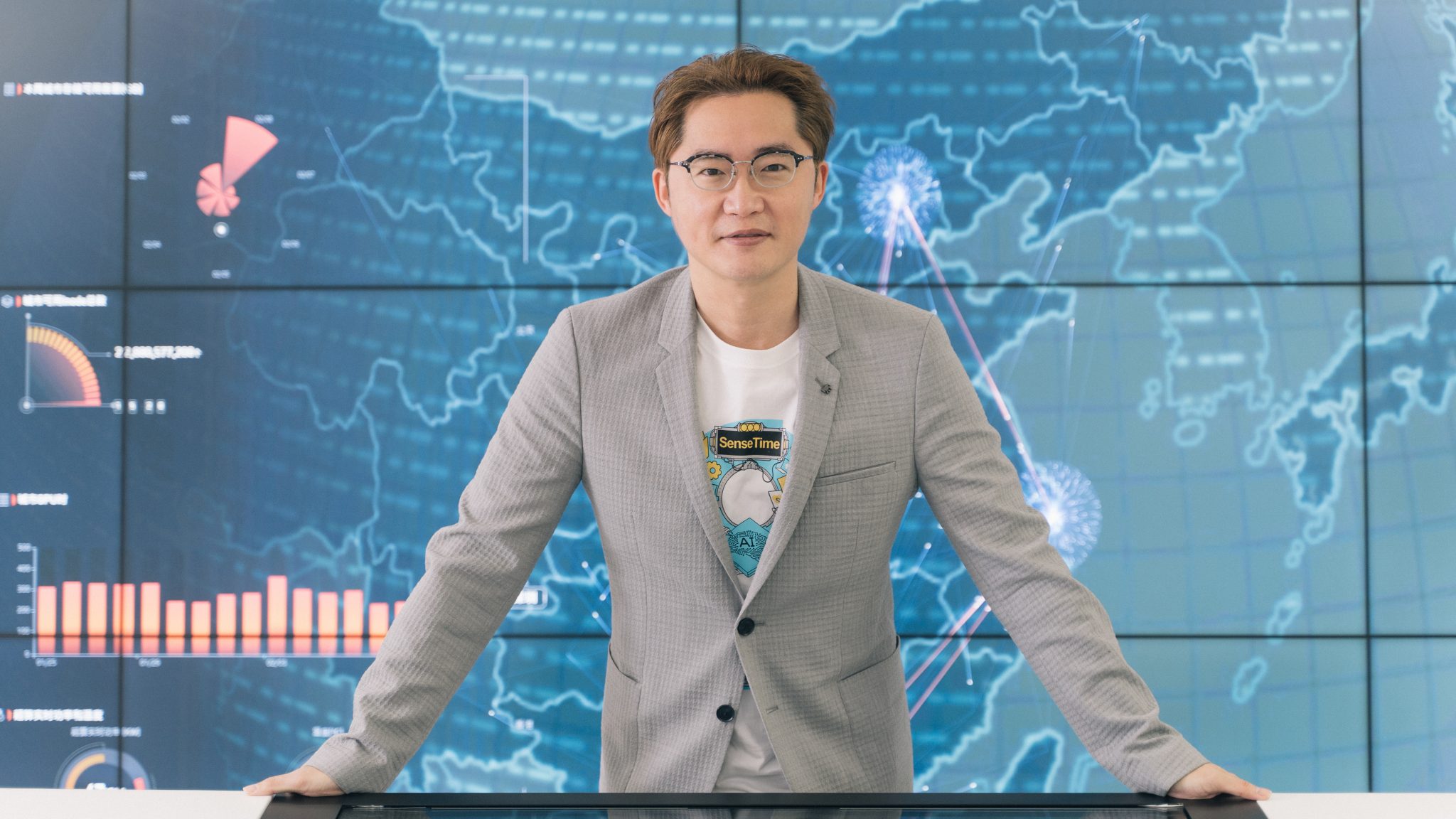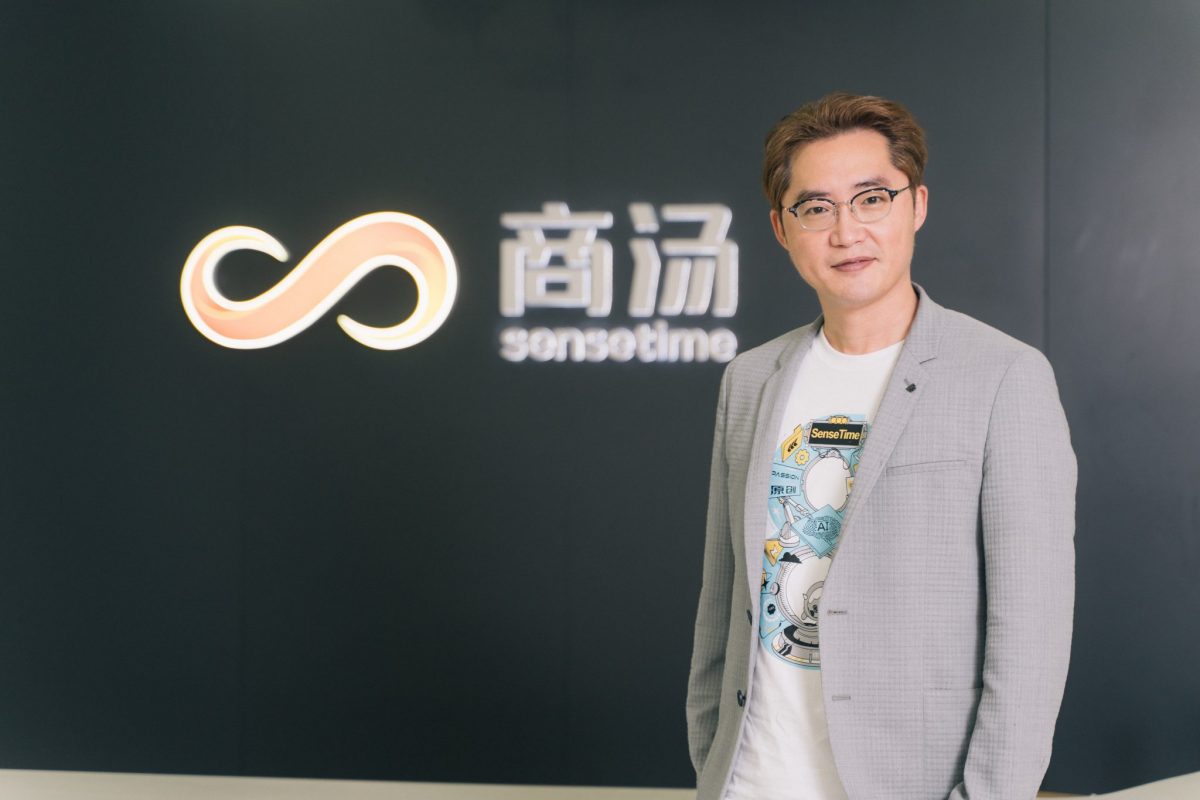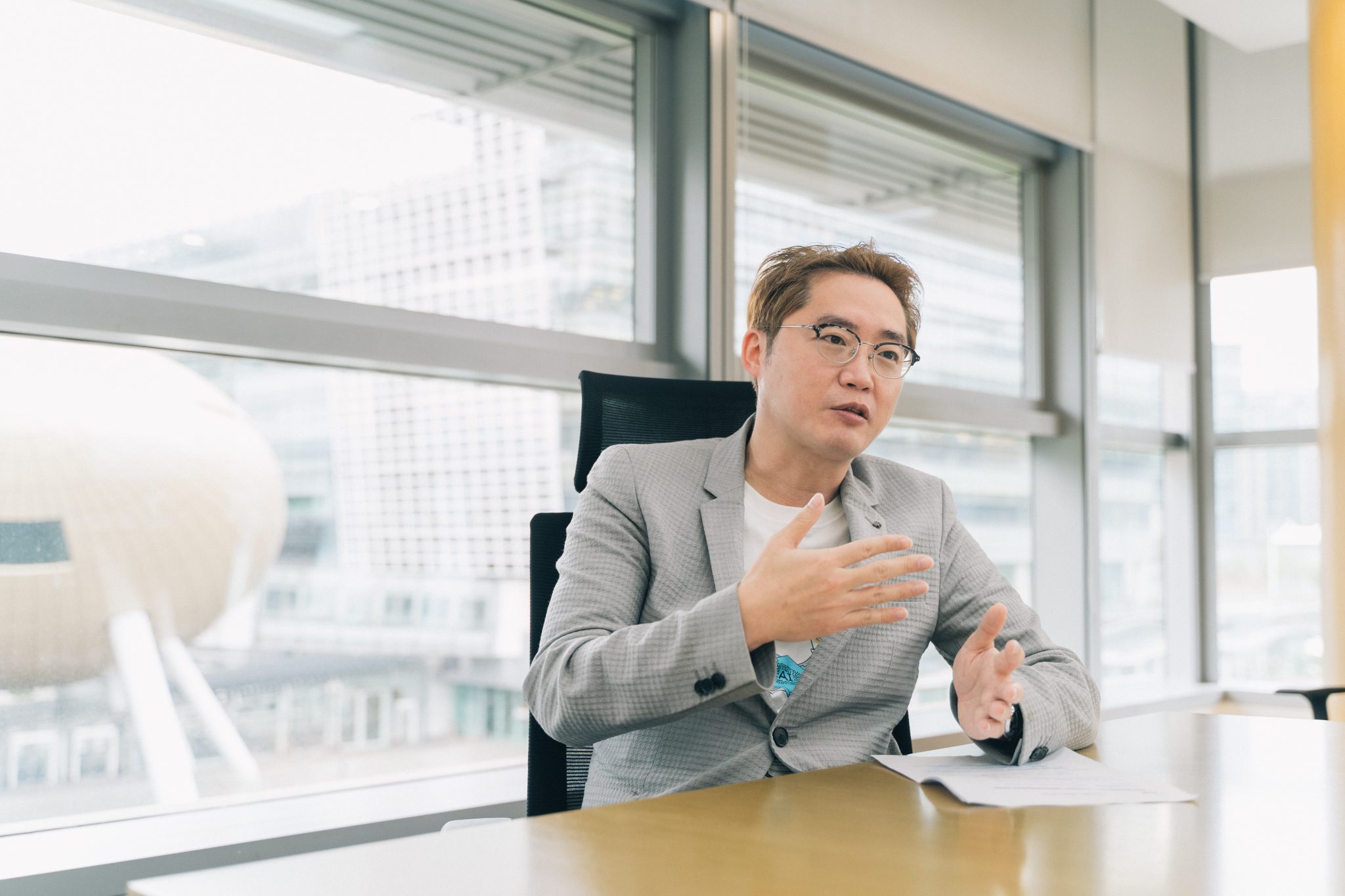Living in an AI-Powered Future Today

Many people believe that 2023 will be the year when artificial intelligence (AI) explodes and the decades of toil, tears and sweat of industry pioneers bear fruit. “People working in AI have persevered not because we saw hope. We’ve held on because that’s the only way to find hope,” said Nixon Chau (EMBA 2015), Managing Director and General Manager of SenseTime Hong Kong.
Despite the doubts he faced along the way, Nixon believes that action is the best affirmation of aspiration. With well thought out plans, he persuades his peers and partners to join him in his work to build the future.
Forging a New Path with Conviction
Nixon, a computer science graduate, has always been interested in tech trends. He knew early on that AI would be a major trend propelling human progress. For this reason, he joined various tech firms to gain experience while keeping an eye out for opportunities. Such an opportunity presented itself in 2020, and he seized the chance to join SenseTime.
According to Nixon, working in AI has catapulted him into the future: “While people talk about three-to-five-year plans, we cast our vision on horizons 10 years and beyond.” People outside the industry frequently dismiss AI ideas as being beyond the realms of possibility. It has not been easy to persuade investors either. AI projects often require astronomical sums of investment just to build the necessary infrastructure, as if validating the saying “You have to pay to play”. Continuous adjustments must be made along the way to keep up with the latest developments, and failures are unavoidable.
Nixon made the decision to join the industry not out of hope, but rather through research and data analysis. His science education helped him develop this rational approach, which he now applies to his projects. “AI development is never based on feelings or fantasies. The field places a premium on databases, and every project necessitates massive and systematic data collection, analysis and deployment in order to achieve precise technological results.” Nixon stated that it is critical to believe in one’s analysis and decisions in the moment, learn from failures and be courageous in innovation to become a leader in the field. Acting on this axiom, he experimented with starting up a company before joining SenseTime to learn the ins and outs of turning ideas into reality. “If you can’t accept failure, you’ll always follow trodden paths and proven formulas. And you’ll always be a follower.”
 Nixon recognised AI’s meteoric rise and decided to join SenseTime in 2020 to help the company’s business and strategic development in Hong Kong.
Nixon recognised AI’s meteoric rise and decided to join SenseTime in 2020 to help the company’s business and strategic development in Hong Kong.
Setting the Tone for the Future of AI
When Nixon joined the industry, AI was not as prevalent as it is today, and his primary focus was on communication and awareness building. With cloud computing and digital technologies increasingly permeating daily life in recent years, there has been concern about AI’s information security, potential to replace human workers and ethical use. “Every new creation goes through an evolutionary stage in which the benefits and risks appear irreconcilable. We must confront the core issues rather than avoid them.”
Nixon believes that the future of smart development hinges on people’s vision and openness. Because change is bound to happen, it is preferable to embrace it and prepare for it by increasing readiness and taking charge. “I don’t believe AI will replace human workers entirely. Rather, people who are unable to harness this technology will be replaced by others who are able to use it effectively.” He compared tech pioneers to Tang Sanzang in the novel Journey to the West, in which the Buddhist monk travels to Tianzhu to retrieve Buddhist scriptures. In addition to personally persevering in their arduous journey, tech pioneers must discover the qualities of their fellow travellers, allowing them to grow and manifest their strengths, in order to collectively turn aspirations into realities.
Nixon remarked that Hong Kong’s innovation and technology (I&T) development benefits from a unique combination of timing, location and talent. These favourable conditions will enable his team to go further. “The government is working in concert with national policies and promoting I&T growth in eight major directions. With the Greater Bay Area’s vast application scenarios and I&T support, as well as Hong Kong’s excellent inherent strengths, including having five universities ranked among the global top 100, we can definitely foster more success stories and propel AI growth.”

With Debate Comes Clarity
Nixon described his EMBA experience at CUHK as a period of personal growth and confidence building. He vividly remembered professors guiding students to share their thoughts with an open mind before examining the issues calmly and rationally. “It was like watching kung fu masters fight other masters in movies. Elites from different industries bring their best to the game, and the exciting exchanges would spark all sorts of new knowledge and ideas. It was great fun.”
He stated that the present age is one where “if you’re not moving forward, you’re falling behind”. Young people should strive to absorb more knowledge, embrace exploration opportunities and broaden their minds and experiences. “You’ll become firmer in your actions and beliefs after repeated validation, and you’ll find the right path forward.”
First published in the CUHK Business School Alumni Website on 7 March 2023, this article was republished with permission from the School’s Alumni Affairs and Development Office.

